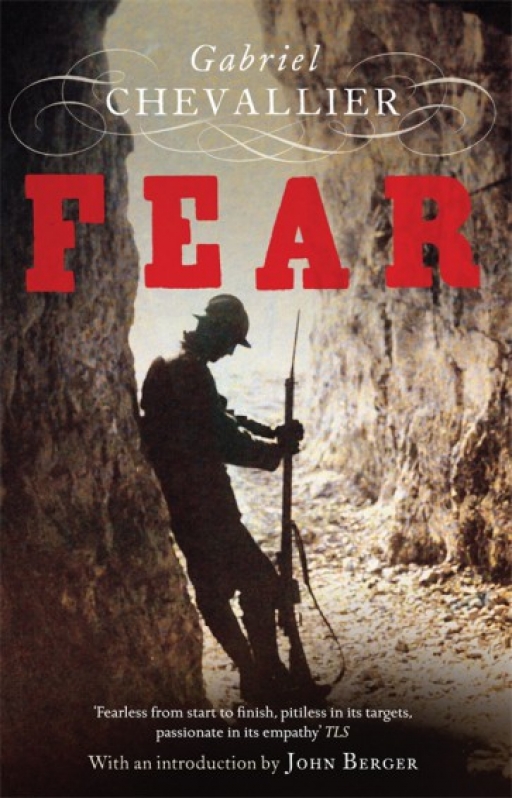Publisher’s Description:
‘It is 1915. Jean Dartemont is just a young man. He is not a rebel, but neither is he awed by authority and when he’s called up and given only the most rudimentary training, he refuses to follow his platoon. Instead, he is sent to Artois, where he experiences the relentless death and violence of the trenches. His reprieve finally comes when he is wounded, evacuated and hospitalised. The nurses consider it their duty to stimulate the soldiers’ fighting spirit, and so ask Jean what he did at the front.
His reply?
‘I was afraid.’First published in France in 1930, Fear is both graphic and clear-eyed in its depiction of the terrible experiences of soldiers during the First World War.’
Centenary News Review:
Review by: Eleanor Baggley, Centenary News Books Editor
It’s quite a rare thing for a First World War novel to surprise me. We see the same tropes – the mud soaked trenches, lice, death, ignorance – in the majority, whether that’s in the novels of the 20s and 30s written by those who experienced it, or in modern novels where all too often the ‘expected’ imagery is shoehorned in around a central plot. Gabriel Chevallier’s Fear however, is quite different.
Fear was published in 1930 to huge controversy. It is part novel and part memoir, but it’s hard to see similarities between Chevallier and his protagonist. Chevallier was called up at the start of the war, wounded a year later, but returned to the front and served until the end. He received multiple medals including the Croix de Guerre.
Jean Dartemont, on the other hand, is not the man you’d expect. He’s not heroic and his one goal is to survive the war whilst doing as little as possible. He avoids his duties, falls out of marches and catches lifts to the intended destination, and does anything he can to evade the fight. Dartemont returns home on leave after being discharged from hospital and his father is disgusted that he has nothing to show for his year at the front: no promotion, no stripes.
Fear both addresses and attacks ignorance. It is unsettling in its relentless approach to the truth and the importance of real life and real experience. It starts with the proclamation of war and Chevallier presents a damning indictment of the men and women who become like sheep in their patriotic fervour.
Although Fear follows a similar trajectory to many World War One novels and covers much familiar ground, his approach is even more unsympathetic than many. He also addresses something that is often implied, but not always dealt with head on: fear. Whilst convalescing in a hospital bed Dartemont is asked to regale nurses with tales of his exploits on the front. His response is blunt, interpreted as insolence and leads to accusations of cowardice from the nurses:
‘Would you like to know the chief occupation in war, the only one that matters: I was afraid.’
It is this discussion of fear and the act of admitting this fear to those patriotic sheep, that makes this book a necessary and important addition to the canon of war literature. Chevallier talks openly about what others have only heavily implied – that war is terrifying and that sometimes it’s not about the big picture, it’s about keeping yourself alive.
Chevallier ceased publication of Fear, a startlingly anti-war novel, on the outbreak of another war in 1939. Thankfully it has been rediscovered and can take its rightful place alongside All Quiet on the Western Front, A Storm of Steel and Her Privates We.
It feels wrong to say that I liked this book because it is a book that defies you not to like it. It challenges the reader now as much as it challenged the reader in 1930 who would have been there in some capacity, whether at home or on the lines. We’re forced to confront the absolute reality of war and, like the old man who Dartemont shocks into choking on his beer illustrates, it is not an easy reality to take.
What do you think about this book or review? Please add a comment below.
